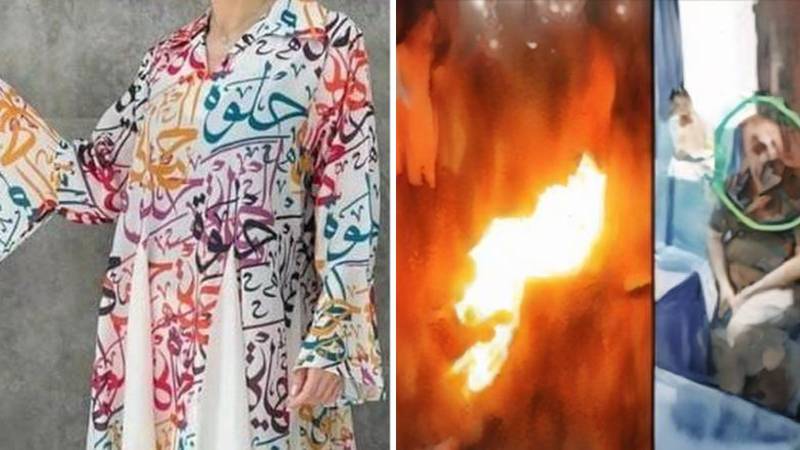
The truth of the matter is that this culture of vigilante murder of people accused of blasphemy dates back to 1929, when Ilm Deen killed Mahashe Rajpal in Lahore. This was a clear case of murder, but Deen was widely defended by the Muslim political and intellectual elite at the time. Among such notable Muslim figures were Pakistan’s founding father Muhammad Ali Jinnah and the martyred governor Salman Taseer's father Muhammad Din Taseer, who was among Ilm Deen’s key supporters, helping raise funds to cover Deen’s legal expenses and donating the shroud in which Deen was buried.
After Mohandas Gandhi's entry into the mainstream, Indian politics had become increasingly centered around religion, and it only made sense for the Muslim elite to defend and glorify Ilm Deen, a member of the oppressed Muslim community at the time who merely expressed the frustrations of his people over Rajpal’s outrageous commentary on Islam. In fact, Muhammad Ali Jinnah was also Deen’s lawyer, and he appealed to the Lahore High Court to seek the commutation of his death sentence to imprisonment for life on the grounds that Deen was only 19 or 20 years old. Over time, Deen became a hero in the Indian Muslims and in later Pakistani consciousness. Idealized as a defender of the faith, he has even been featured in school textbooks.
As a member of the Pakistani Christian community, this is a deeply disturbing reality that I have been preparing to live with
Today, the idea of vigilante killing of someone over mere accusations of blasphemy is strongly held in the minds of hardline Barelvi clerics and their base, especially in the post-Mumtaz Qadri and Khadim Rizvi era. Swat and Jaranwala will not be the last incident, and many more Mumtaz Qadris are yet to come. To understand this, you need to look no further than the fact that Qadri's execution has become a rallying point for hardline Barelvi clerics since 2014. In fact, the mosque built in Islamabad and named after Mumtaz Qadri has been very popular; his grave has sometimes been visited by hundreds of devotees in a day and has now been transformed into a pilgrimage site.
As is often the case, the Pakistani elite and intelligentsia seem to be disconnected from this reality: they like to think that such incidents can be prevented. The constituency of Barelvi clerics makes up the largest majority of Pakistan's Muslims, most of whom are from working-to-middle-class backgrounds. Meanwhile, the low-ranking frontline policemen who are supposed to defend against blasphemy vigilantism on the ground often tend to be subscribers of Barelvi clerics themselves, and would have little resolve to confront a mob that is often actively charged by hardline clerics.
Clearly, you cannot take away the Ilm Deen and Mumtaz Qadri ideal from Barelvi clerics overnight; the very idea forms a key rallying point for them today. A more unfortunate fact is that both religious minorities and followers of hardline Barelvi clerics tend to be from working-class backgrounds, they often live side by side in urban slums. This is a perfect recipe for unending violence.
As a member of the Pakistani Christian community, this is a deeply disturbing reality that I have been preparing to live with.
The Pakistani intelligentsia, intentionally or unintentionally, fails to acknowledge that blasphemy vigilantism, which started with the epic of Ilm Deen, has today been widely adopted and employed by the hardline Barelvi clerics to assert their existence and space in the sociopolitical sphere. Visibility and relevance in the sociopolitical sphere matters, especially for hardline Barelvi clerics who have felt ignored and overlooked, especially when the Pakistani government and security apparatus afforded patronage to the Deobandi clerics in the past. It is a great misfortune of Pakistan and the historically peaceful Barelvi sect that blasphemy vigilantism has become the only tool available to hardline Barelvi clerics to justify their existence and assert their sociopolitical identity.
The fact of the matter is that the Pakistani political and security elite is very hesitant to ruffle feathers and crack down on this emerging trend of blasphemy vigilantism. This hesitation is justified at some level, because past attempts at such a clampdown have resulted in some of the most violent episodes in Pakistani history.
The unfortunate reality is that the genie is out of the bottle and putting it back in will be a very painful process, which the Pakistani political and security apparatus is unwilling or unable to bear. The only way forward is to become used to blasphemy vigilantism on a regular basis and develop effective mechanisms to quickly stall mobs, evacuate victims and provide protection and support to them in the long run.

